Goodbye, Terence Davies (1945-2023)
 Sunday, October 15, 2023 at 5:00PM
Sunday, October 15, 2023 at 5:00PM 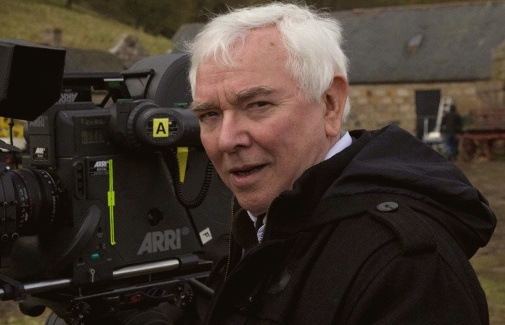
A moment ago, I knew exactly what I wanted to say to you. I have run through this letter in my mind so very often and I wanted to compose something eloquent, but the words just don't seem to be there.
So mused Hester Collyer in The Deep Blue Sea, and so I felt this past week, trying to articulate a fitting farewell to Terence Davies and failing to do so, over and over again. Words don't seem enough to describe what the filmmaker meant to me. Suddenly, my limitations as a writer became obvious, heavy on the soul, almost accusatory, for I can't seem to express what cinema lost on October 7th, 2023. It feels too big a calamity to encompass within a measly obituary. At the same time, this bruisedness that conquers me seems foolish, one of those idiocies of celebrity culture. How can I not feel silly for this grief over someone I've never met and will never meet? How can I worry about this considering everything else going on in the world? I don't know, yet I do.
Eloquence and intelligence, sensibility and sense have slipped from my grasp, so vulnerability might have to be the last resource available to confront this text, clumsy as it might seem. At my wit's end, it's all that's left…
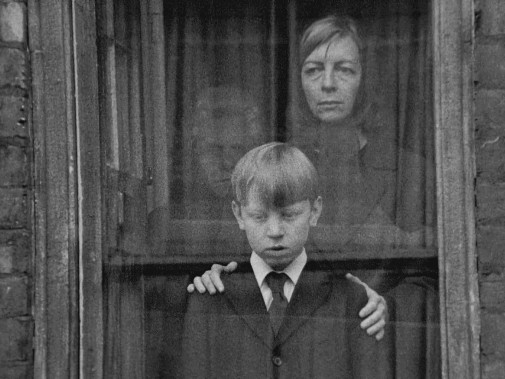
But where are you, the Liverpool I knew and loved? Where have you gone without me? And now I'm an alien in my own land. Tread gently, stranger, as you softly turn the key to unlock time and cause the years to fall towards their end.
- Of Time and the City, Terence Davies
Before he was a poet making filmed poems about other poets, Terence Davies was a queer boy born to a working-class Catholic family in 1945 Liverpool, right as the embers of World War II cooled into naught but painful memory. The youngest of ten children, he was raised religious by a mother for whom faith was a path to salvation. Moreover, the future filmmaker spent the first seven years of his life terrorized by a violent father. When he died from cancer, grief took a step back as relief came to the forefront. Davies would later say that the years between his father's demise and his boarding school days were the happiest of his life.
The heart's cruel truths may seem hideous, but that does not make them lies. Indeed, the feelings carried from his father's wrath and ultimate demise would reverberate through future work.
Pete Postlethwaite's character in the director's 1988 feature debut, Distant Voices, Still Lives, is the ghost of the Davies patriarch reborn. Before that, the dead man in the Children short is that same phantom put to rest. Like many a great artist, Davies brought himself into his work, metamorphosing the screen into a window open straight into the man's soul. His first three shorts, in particular, form a memoir of sorts, tackling the contradictions of a boy faced with mourning a father he didn't love, a man stuck at the crossroads of self-hating faith and forbidden desires, a Liverpool elder meeting his maker. Even at the start, Davies considered his end, constantly elaborating elegies – for cities, for loves, for himself.
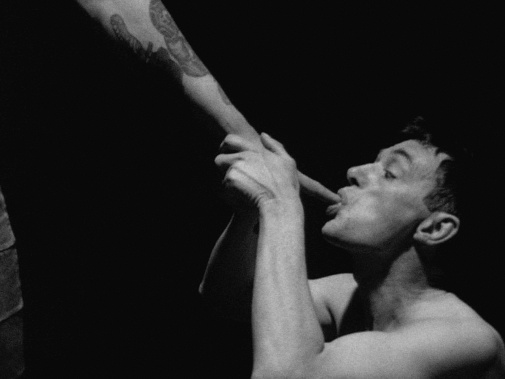
The moment passes, but the hurt remains.
- Benediction, Terence Davies
These early works, later collected as the anthological Terence Davies Trilogy, were made possible by the BFI Production Board, to whom the director appealed in the mid-70s after leaving his hometown to attend Drama School and finding himself dissatisfied with the conscripted visions of art he was taught. Though inexperienced, he proved himself a master director, creating a black diamond of concentrated emotion with 1976's Children. It's excruciating to watch at times, though there's hope within its funereal moods, just like there's a sense of excitement running through the confessional Madonna and Child from 1980.
In it, patriarchal traumas give way to the scars of maternal devotion, Catholicism a poison Davies was force-fed since birth. The church taught him inward disgust, decrying his desire for other men as some depraved taboo and demanding self-mortification through guilt. It taught him a dogma of loneliness, promising lifelong emptiness for the depraved unable to change their ways. Yet, for all it taught, it couldn't spell away the reality of one's want. And so, these opposing forces mingled, mixed, and curdled together. Hand in hand with its sacramental rite, Madonna includes flashes of kinky fantasy. 1983's Death and Transfiguration finds a queer man decaying while carnal memory intrudes upon his solitude.
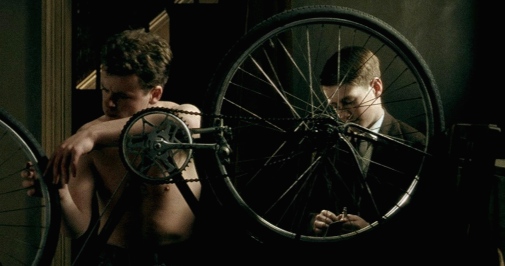
The heart asks pleasure—first—And then—excuse from pain...
- The Heart Asks for Pleasure, Emily Dickinson
In a present paradigm where queer representation in cinema is so often shackled to expectations of positivity, Davies' profoundly personal work is a contrarian gesture. Without trying to be, it feels radical, almost shocking, though seldom disconnected from the possibility of some ephemerous bliss. In the end, though, Davies would still say that being gay ruined his life. He hated it. And thus, queer joy withers away on the vine while queer sorrow blossoms across the screen. Similarly, the roots of yesteryear break the concrete of today to flower the past into our present – yes, queerness is a tantamount tenet of Davies' cinema, but the flexibility of cinematic time might outrank it in importance.
With editing and movement, with structure and music, the director breaks down the already porous barriers separating temporal tenses.
The mind wanders to the beautiful dissolves in Benediction, or how Siegfried Sassoon's wartime remembrance materializes in his room with no preamble. We walk every day alongside our past, so why shouldn't cinema visualize that reality? One need not go straight to Davies' feature swansong, however. Distant Voices, Still Lives is as keen on playing with time and memory, breaking Davies' fictionalized childhood into a quasi-musical where the advent of song defines the shatters and fragments of a family history in post-war Britain. The country's tradition of kitchen skin realism is upended by something closer to celluloid impressionism. 1992's The Long Day Closes continues that exercise, going for a cinephile's nostalgia instead of a jukebox memory play.
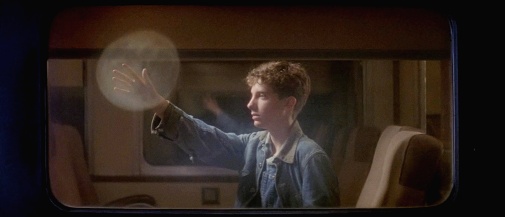
There's a line between love and fascination,
That's hard to see on an evening such as this,
For they give the very same sensation.
When you are lost in the passion of a kiss.
- My Foolish Heart, Ned Washington
Terence Davies' cinema would never again be so nakedly autobiographical after The Long Day Closes. Even so, he found space for himself in every picture, making a series of literary adaptations into extensions of his earlier self-portraiture. Such is the case of his remaining 20th-century works, both taken from respected novels, both set far away from the director's Liverpool origins. 1995's The Neon Bible and 2000's The House of Mirth are Terence Davies' American movies, though they find thematic continuity with his oeuvre. They do so by focusing on a sense of longing without end, grasping at that which cannot be expressed outward, people isolated and set apart to the point they become outsiders within their social cosmos.
Furthermore, their tonal textures and audiovisual idioms go back to the memoirist films. In the John Kennedy Toole adaptation, space itself seems to disintegrate, the void of theatrical hyper-unreality coming for everyone on screen. Later, the Edith Wharton story would look at a past glowing like fool's gold, gossamer and fragile as if it were an illusion that could dissipate into a cloud of vapor at any time. The projects were relatively lavish compared to Davies' earlier work, but instead of opening doors for the director, they seemed to close them. In 2008, trapped in a vicious cycle of unfinanced projects, he directed his sole documentary feature, Of Time and the City, which feels like a preemptive goodbye from an artist unsure if he'll ever be able to complete another piece.
It's a bitter picture, alright, pondering a Liverpool that is no more while dissectioning all the loves and aches of a man who found so much reprieve from pain on the silver screen, in music, and poems. Yet, with that evocation of personal treasures, another side of Davies' cinema comes to the forefront, unlocking the deep joy hidden within his work or, perchance, translating it Rosetta Stone-like. For all his sadness, Davies was full of affections and eager to share them, every song a spark of pleasure and so much more. There's also humor there, sharp-tongued and witty to no end, scathing assertions about unjustice that make their point across while winning a smile, a chortle, a laught from the audience. Watch the doc just for his comments on Queen Elizabeth's coronation - they're worth it.
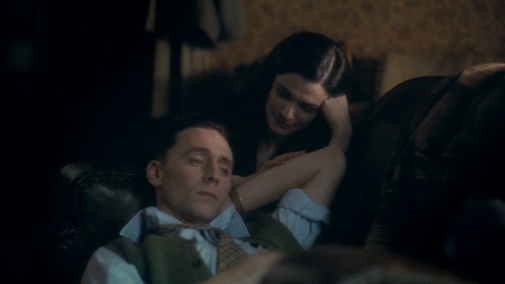
I seem to sigh, I'm in heaven,
When night is falling and love is calling me home.
- At Dawn, Robert Gordy & Thomas Kemp
I didn't meet Terence Davies' genius until the last phase of his career, when, after Of Time and the City, the director found enough support to return to fiction filmmaking. First came a play adaptation, 2011's The Deep Blue Sea, where the artist's well-known melancholia metastasizes over the romantic aches of a suicidal woman. It's a ravishing dive into the depths of yearning beyond reason, topped by a Rachel Weisz performance for the ages. For me, it was love at first sight. 2015's Sunset Song came next, a landscape painting that grew from Lewis Grassic Gibbon's novel and had gestated since the House of Mirth completion.
Unlike many of Davies' dream projects, that Scottish drama came to fruition before his death. On the other hand, his take on Sondheim's Follies, Zweig's The Post Office Girl, and a Noël Coward biopic wouldn't enjoy such good fortunes. They will never be.
Before the end, however, there was still time for two poet portraits, now fated to be remembered as Davies' last hurrah. In their own idiosyncratic ways, they're also the director's final stabs at autobiography after The Long Day Closes. This time, they are achieved through the prism of another life, Emily Dickinson in 2016's A Quiet Passion and Siegfried Sassoon in 2021's Benediction. Perhaps because Davies considered his subjects as ways to consider himself, so, too, can the audience peruse the films and find themselves before an imperfect mirror that, nevertheless, reflects truth at its onlooker and may even tell them something new they didn't know about their soul. At least, that's my experience.
And that, ultimately, is why writing a final farewell to Terence Davies feels so impossible, so painful, each word feeling anodyne and like the press of the scalpel's blade. Through his films, I learned more about myself, the possibilities of cinema, beauty and pain, the nature of memory, the anger of regret over regret. Despite descriptions full of words for suffering all over this page, the anguish that came with seeing his films never felt like a destructive force. Instead, it's nourishing, a catharsis that kisses warmth on tear-streaked cheeks and demands a smile after sorrow. A magic of opposites, this man's cinema is a miracle to me, from the first frame of Children to the brotherly eulogy of his last short.
I can't begin to imagine a world without Terence Davies, but now I must. Then again, maybe not, for his work remains and, with it, the artist's soul. Paraphrasing Chekhov, Davies says, in Of Time and the City, that golden moments pass and leave no trace. For my own sake, I'll have to disagree, wishing eternity unto his golden filmography, forever unforgettable, forever cherished.
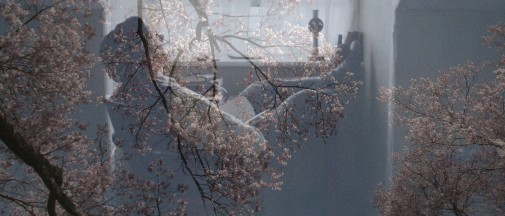
No star is o'er the lake, its pale watch keeping,
The moon is half awake, through grey mist creeping.
The last red leaves fall round the porch of roses,
The clock has ceased to sound. The long day closes.Sit by the silent hearth in calm endeavour,
To count the sound of mirth, now dumb forever.
Heed not how hope believes and fate disposes:
Shadow is round the eaves. The long day closes.The lighted windows dim are fading slowly.
The fire that was so trim now quivers lowly.
Go to the dreamless bed where grief reposes.
Thy book of toil is read. The long day closes.
- The Long Day Closes, Arthur Sullivan



Reader Comments (9)
I have never seen anything of his but I am always interested in them. Where is the best place to start with his body of work?
thevoid99 -- While I started with THE DEEP BLUE SEA, I think DISTANT VOICES, STILL LIVES and THE LONG DAY CLOSES would make the best beginning for one's Terence Davies journey.
I have never seen those early ones you mention which people seem to love I started with House of Mirth which is great and thought The Deep Blue Sea was strong and Benediction definitely had its moments. but I couldn't with A Quiet Passion or Sunset Song which were both too slow and ineffective for my personal tastes.
I should definitely see the two famous 80s pictures!
THE LONG DAY CLOSES is one of the great masterpieces of cinema, as is the trilogy of shorts that kicked off his career. THE NEON BIBLE deserves a Criterion release. A QUIET PASSION and BENEDICTION are such perfect career cappers, both so deeply autobiographical even though neither is about him. Davies will be sorely missed!
What a lovely tribute to Davies. I don't love all of his work, but The House of Mirth is a real high point. I remember being wow-ed by how he seamlessly transitioned from a rainy lawn to a gleaming ocean to an idyllic landscape back to the ocean and then to a ship's deck. He made really beautiful movies. Thanks for the wonderful read.
I find his movies almost impossible to track down, but luckily I was able to stream both THE DEEP BLUE SEA and BENEDICTION during covid. I saw them pretty much back to back.
I remember being absolutely knocked out by DISTANT VOICES STILL LIVES which I saw at a movie theater back in the day. The whole thing felt so private, and so real. It felt the way memory works.
I really want to see his first two films again, does anyone know if they're streaming anywhere? I couldn't find them during covid.
I've seen 3 of his films and enjoyed them all,he always got very naturalistic but still sylized performances out of his cast Pete Postlethwaite in 1988 and Gillian Anderson in 2000 then Rachel and Simon Russell Beale in 2012.
Saw The Deep Blue Sea when it came out and became obsessed - it really encapsulated how I felt at the time (ie. depressed lol). It felt like a soft dream/vision of this woman's depression. That's when Rachel Weisz became one of my favorite actresses.
I haven't seen it in so long at this point, I could enjoy a rewatch.
Terence Davies' contribution to the world of film will indeed be remembered and cherished, and your tribute beautifully reflects the profound and lasting impact he had on those who experienced his work io games